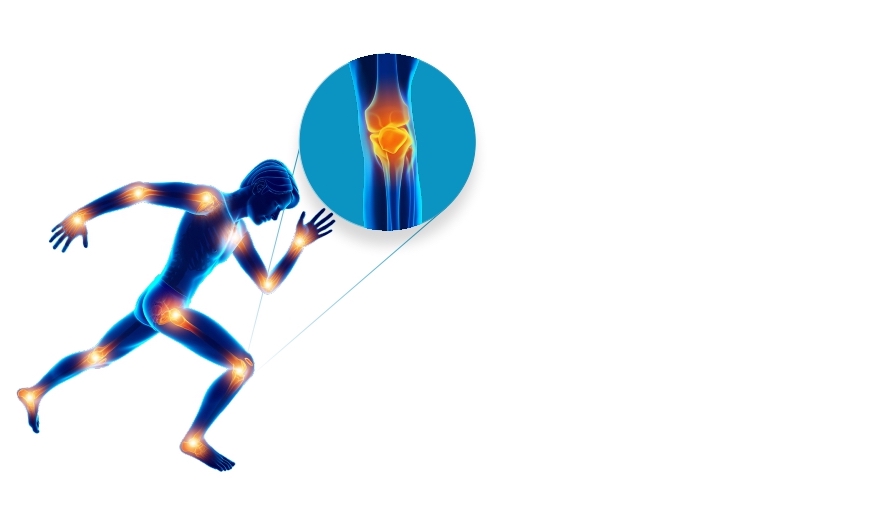Four in ten Asians suffering from Osteoarthritis and joint pain believe Covid-19 restrictions negatively impacted their life
According to a recent survey promoted by Viatris, 43% of respondents declared that, due to COVID-19 pandemic, their condition became more difficult to manage as quality of life worsened to some extent
The impact on quality of life was felt practically and psychologically, with four out of ten in Malaysia finding it harder to cope emotionally with their condition during the restrictions
World Arthritis Day is celebrated every year on October 12th and is an important global awareness day established to give voice to people affected by rheumatic and musculoskeletal diseases (RMDs). For this occasion, an online survey was conducted by ELMA Research for Viatris across Thailand, Malaysia, South Korea and China to investigate the emotional, practical and physical impact that COVID-19 restrictions have had on the quality of life of Asian osteoarthritis and joint pain sufferers.
Osteoarthritis (OA) is one of the 10 most disabling diseases in developed countries and its prevalence rises with age and increasing body mass index. It is anticipated that the prevalence of OA will increase to approximately 350 million people by 2025. OA leads to a reduced quality of life, and in patients with a disability, OA is a predictor of premature death and is associated with an increased mortality. To address the challenges faced with the world’s aging population, the World Health Organization and United Nations have developed an initiative entitled “Decade of Healthy Ageing”. This initiative promotes integrated and long-term care, for the management of chronic conditions.
Overall joint pain is considered as a problematic condition. One third of survey respondents including 17% in Malaysia feel that the condition has a significant impact on their quality of life during normal times. What’s more, this feeling worsened during the social restrictive measures implemented during Covid-19, as declared by 43% of people suffering from OA and joint pain. In Malaysia this percentage increases to 45%.
The containment measures that became necessary during the global pandemic had a psychological and physical impact on people suffering from OA and joint pain. Globally, about four in ten people found it harder to cope
with their condition both emotionally and physically. In Malaysia, 40% and 39% of respondents had a hard time managing their condition from an emotional and practical point of view, respectively, due to the added pressures related to the imposed measures, such as social isolation and mobility restrictions.
Mind-body exercises, weight control and a healthy nutrition plan are an integral part in the management of joint pain and OA diseases. Covid-19 restrictions impacted the possibility to play sports and take part in leisure activities such as going on walks or meeting with other people, which contributed to making daily life harder for patients.

Osteoarthritis can lead to premature death which is why action towards prevention should be highly encouraged. Early diagnosis and early access to treatment, together with a greater awareness of the disease and the ability to promptly recognize the symptoms are crucial.
The difficulties faced by people suffering from OA and joint pain during Covid-19 led to a growing need of support from caregivers. About half of the survey respondents globally relying on a caregiver (55%) declared needing more support in carrying out daily activities during the restrictions. Malaysia is under the global average with a percentage of 54%. However, four in ten struggled to get the help that they needed and one in ten were unable to access any support. In South Korea, 28% of respondents said that they didn’t get any support.
People suffering from joint pain need to be able to consult with their doctors regularly to manage the disease and follow a correct treatment plan. During Covid-19, for most sufferers the quality of these relationships remained the same or even improved. The role of pharmacists also did not change in terms of consultation frequency and proactive treatment recommendation. However, what did change globally were the channels of contact with doctors, with an increasing use of the telephone (51%) and digital channels (43%) as virtual consultations. In Malaysia these percentages reached 55% and 39%, respectively. Only in South Korea face to face remains the predominant channel (60%). When asked to think about the future in the “new normal” after Covid-19, there is an expectation by most (65%) for face-to-face appointments with a secondary role for online and telephone consultations. However, even though Covid-19 restrictions are being lifted, the impact of the pandemic is not over yet and nearly half of the survey respondents including 47% in Malaysia expect it will take another year for life to return to normal.
“Viatris’ mission is to empower people worldwide to live healthier at every stage of life – explained Jeff Bote, Country Manager, Viatris Malaysia and Brunei. True to this mission, we are committed to making Osteoarthritis a priority so that it is diagnosed and treated as early as possible, thereby directly impacting patients’ quality of life.”
What is OA
OA is a progressive disease with symptoms that include pain, stiffness, swelling, and loss of normal joint function. To prevent irreversible joint damage, early diagnosis and treatment of OA is recommended. As OA spans decades of a patient’s life, treatment is likely to consist of different pharmaceutical and nonpharmaceutical interventions, often in combination.
This content is provided by Viatris Malaysia.
Interested in having your announcements on Malaysiakini? Contact the announcements team at [email protected] or whatsapp on +60 17-323 0707 for urgent matters.
RM12.50 / month
- Unlimited access to award-winning journalism
- Comment and share your opinions on all our articles
- Gift interesting stories to your friends
- Tax deductable
